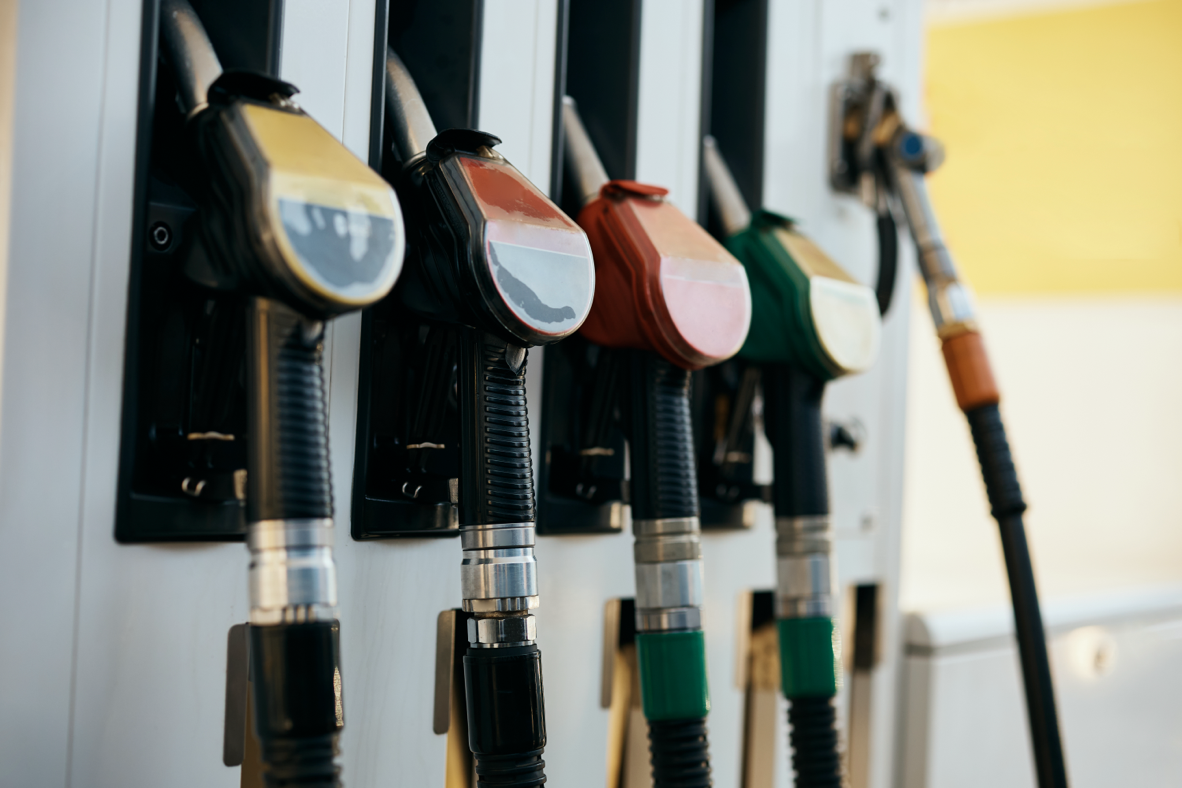Fuel is by far the most significant cost for fleets and with today’s increasingly volatile fuel economy, there’s never been a more critical time to explore ways in which you can implement better efficient fuel usage for your fleet.
One of the biggest challenges fleet managers face is how to reduce growing fuel costs without impacting other areas of their fleet operations.
While many businesses have decided to expand their fleet with electric vehicles, this can still currently be prohibitively expensive and at present, traditional ICE vehicles dominate many fleets.
Although It is widely acknowledged that the adoption of electric vehicles will fast become the norm within the next few years, rising fuel costs are still very much a key factor affecting the majority of fleets.
Now more than ever, it's crucial for fleet managers to uncover ways to reduce costs while increasing productivity and that’s where telematics can come into play.
Reducing fuel expenses with telematics
Telematics technology provides a range of valuable insights to help streamline processes and reduce costs; these include analysing driver behaviour, reviewing routes, monitoring vehicle maintenance and providing solutions to improve overall fleet efficiency.
Here are some ways in which telematics can help reduce fleet fuel costs:
1. Monitoring driver behaviour
One of the biggest factors affecting fuel consumption is how a driver behaves behind the wheel.
Bad driving habits and poor drivers can significantly impact fuel efficiency across your fleet as well as your bottom line.
Telematics provides valuable insights into driver behaviour where their actions can directly impact fuel consumption. Common aggressive driver behaviours such as excessive idling, increased acceleration, harsh braking, and cornering will all have an impact on fuel efficiency across your fleet as well as your bottom line.
Reports and driver scores can help identify consistently poor drivers and allow you to pinpoint problem areas by setting notification alerts when poor driving practices come into play and set goals to help reduce unnecessary fuel usage.
By tracking these driving habits, you can gain better insights into your fleet’s driving habits, create driver training programmes and incentivise better driving performance.
2. Track fuel usage
Through telematics, businesses are able to remotely access vehicle data which allows them to keep track of fuel usage and mileage.
With the ability to track a range of activities such as unauthorised journeys, detours and longer routes, alerts can be set up to identify any queries or suspicious driver behaviour.
These valuable insights into fuel consumption not only help to identify inefficiencies across vehicles and drivers but also allow you to make adjustments on how to manage your fleet operations.
3. Effective maintenance management
Vehicles in poorer condition, have a tendency to be less fuel efficient.
Factors such as aggressive driving behaviour can cause quicker wear and tear, leading to vehicles needing more maintenance sooner than expected.
By taking preventative maintenance measures, you can better understand the vehicles in your fleet and where efficiencies can be made to monitor fuel consumption
Telematics allows you to set up alerts for your vehicles’ maintenance schedules based on usage and mileage so that you can be instantly notified when a fault needs to be addressed. This can significantly help to reduce the wear and tear of vehicles that can cause excess fuel usage.
4. Route optimisation
Are your drivers always taking the most effective route?
The information gathered via GPS can be used to determine quicker and safer routes, reducing the amount of fuel consumed in addition to the length of time the journey takes.
By monitoring your fleet's movements with telematics you can ensure your drivers are taking the most efficient routes - these can be pre-planned to avoid heavy traffic as well as using GPS’ real-time traffic status to find alternative routes which will help prevent excess idling and avoid longer journey times.
Vehicles can also be easily tracked, allowing you to send drivers to jobs nearest their current location so that you can maximise productivity and fuel efficiency.
How can Prolius Fleet’s telematics solution help you save costs?
Reducing fuel expenditure across your fleet is one of the most significant ways to boost your bottom line.
Prolius Fleet offers a fully integrated telematics solution within a comprehensive fleet management platform designed to transform and optimise your fleet operations using real-time data.
Our telematics technology enables you to identify key patterns that impact your fleet’s performance, including fuel usage allowing you to implement long-term efficiency solutions.
Find out how Prolius Fleet can save on your fuel expenses by getting in touch with us and booking a free demo.
